
A series of RPBC Bulletins describe the GF Plus™ scheme and GF Plus™ for several traits including:
GF Plus™ ratings can be used to select seed, seedlings and cuttings with higher values for traits favoring a forest grower's end-product objectives.
Seed certificates show GF Plus™ values for each trait in each seedlot purchased from seed orchards and nurseries. Certificates are provided to seed orchard managers by the Seed Certification Service and to a nursery on purchase of seed. All purchasers of planting stock from radiata nurseries are entitled to receive a seed certificate certifying its genetic link.
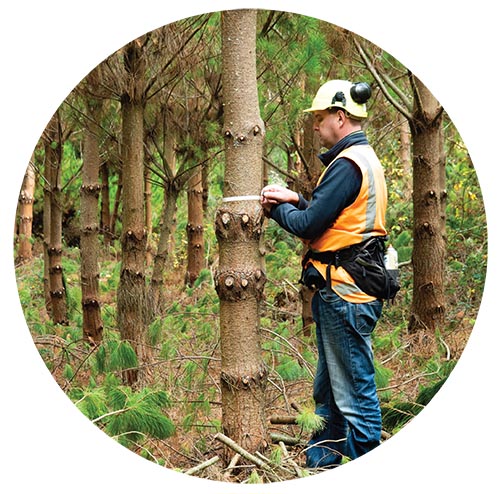
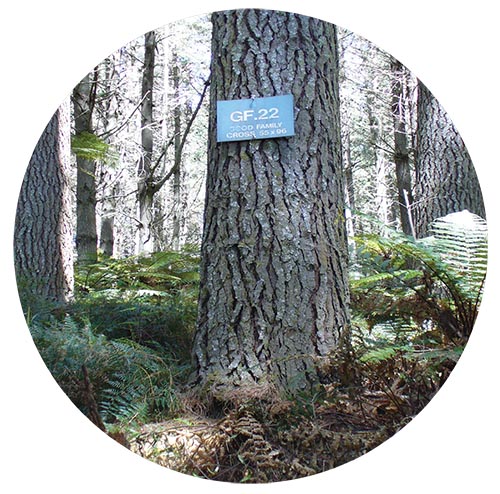
The GF Plus™ Royalty is paid by all purchasers of radiata pine planting stock (including seedlings, cuttings and clones) who are not RPBC shareholders. Shareholders themselves pay an annual levy to RPBC.
The GF Plus™ Royalty is reviewed annually and collected on behalf of RPBC by licensed seed and clonal producers, and nursery growers. Nurseries collect the Royalty for RPBC on plant sales.
For more information about the GF Plus™ Royalty, please read this bulletin or contact the GF Plus™ Administrator,
Kevan Buck on +64 21 277 9593 or email at kevan.b@bfsl.co.nz
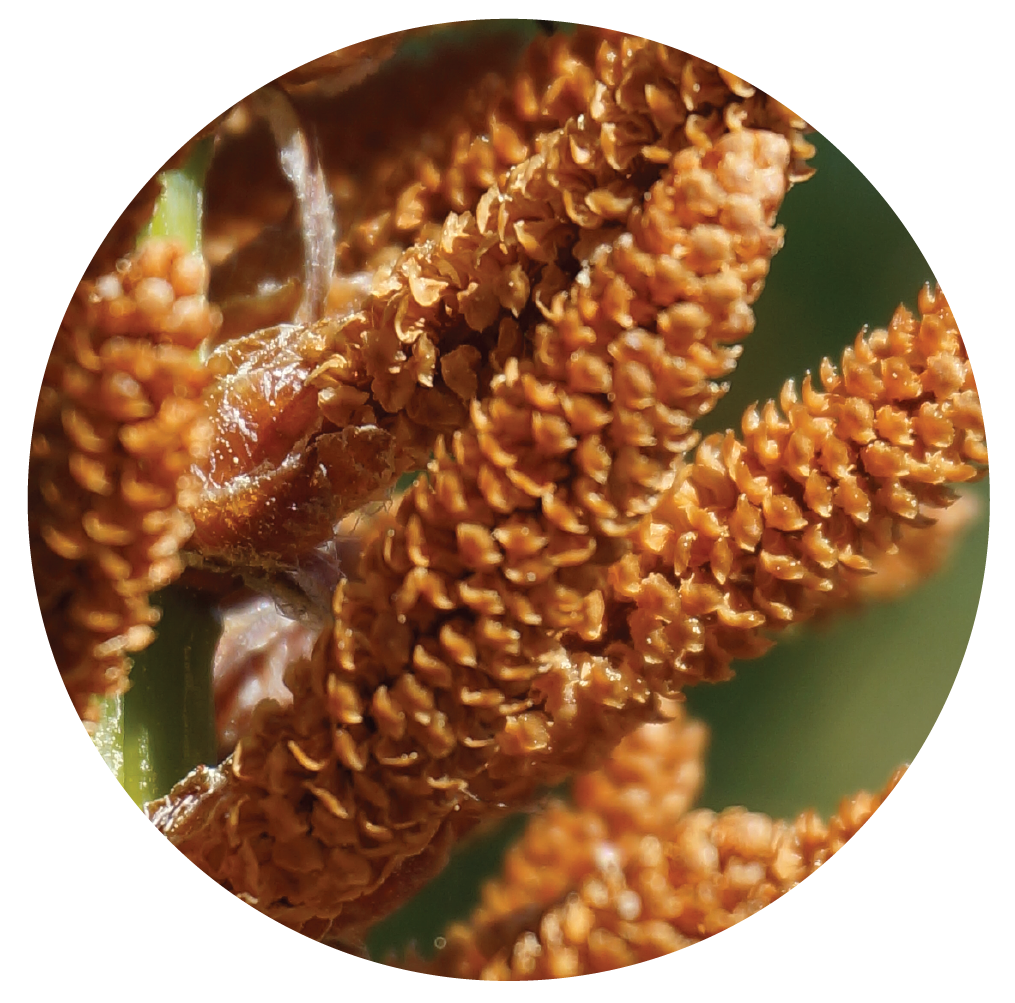
The genetic quality of seed and stock available for purchase varies according to the genetic quality of the parents crossed to produce the various improved seedlots. Parents in commercial seed orchards are top selections from RPBC breeding trials.
Each seedlot is compromised either of one family (or 'cross') or a mix of families ('crosses'). The genetic variability will increase as more families are added to a seed mix. For example, OP seed is a mix of seed from open pollinated parent trees in an OP orchard. Even though all the seed parents are genetically improved, the range in genetic quality in a resulting plantation can be considerable, depending on the number and genetic quality of parents, as well as the degree to which inferior pollen has contributed to the seedlot.
RPBC recommends that forest owners purchase the best genetic quality stock for there purposes. Since RPBC does not breed for adaptation to specific site conditions or economic objectives it is advisable to purchase CP seedlots that include several improved crosses with good GF Plus™ ratings for traits of interest.
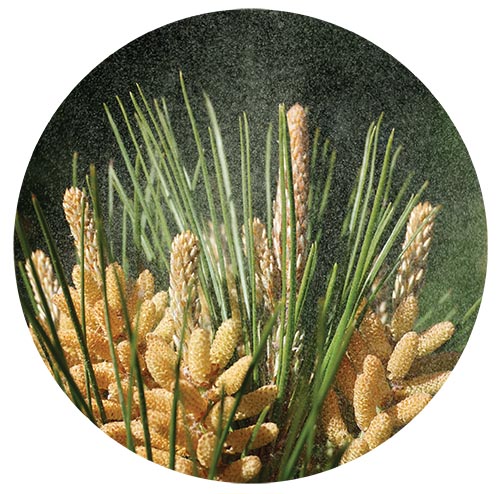
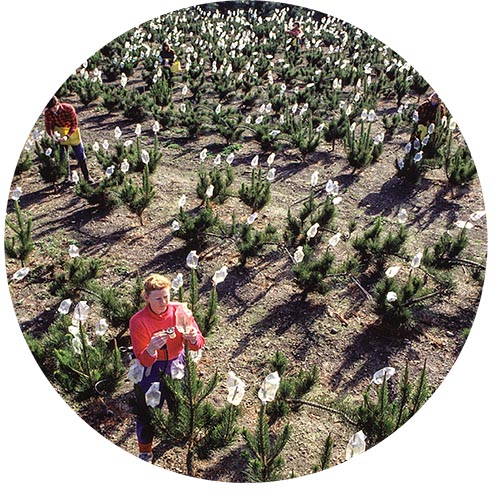
The SCS certifies the genetic ratings for each trait in the seedlot. These ratings are expressed as GF Plus™ values for each CP seedlot whether it contains one family (CP) cross or multiple CP crosses. The certificate is unique, in that each seedlot and each seedlot number is unique. Certifying seed certificates are also provided for OP seedlots. OP seedlots do not have GF Plus™ values because the genetic identity of only one of the parents (the tree producing the cones) in each of the many crosses that contribute to an OP seedlot is known.
Each seed certificate also includes other information including the Seed Orchard, the year of seed collection and its source, and standard genetic ratings for unimproved seed. Seed certificates include the specific parent crosses in the seedlot, whether one or multiple, whether females trees or pollen, the proportions of each parent cross, and each individual parent in the mix.